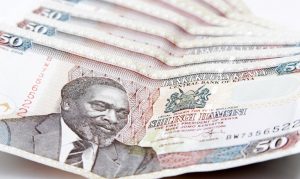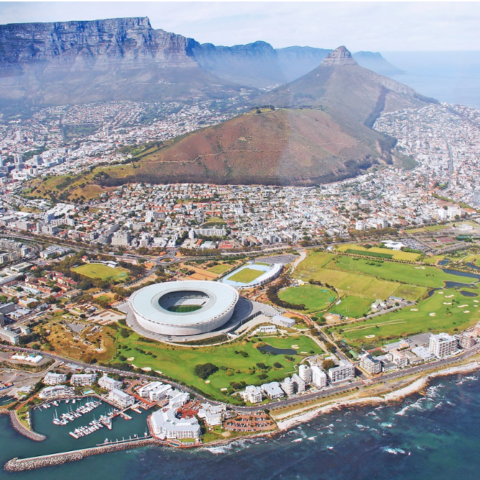By: Kyle Hunter
 Despite the clear impact of internal corruption on African poverty, a Washington, D.C., non-government organization called Global Financial Integrity (GFI) argued in a May report that multinational corporations have an equally remarkable role. Lacking effective transparency requirements, these corporations annually siphon a trillion dollars from developing markets, 500 billion of which end in first-world accounts. Therefore, much of the region’s economic development is financially counter-intuitive, as trade mispricing and “creative” tax practices skew profits away from African nations by unaccountable means.
Despite the clear impact of internal corruption on African poverty, a Washington, D.C., non-government organization called Global Financial Integrity (GFI) argued in a May report that multinational corporations have an equally remarkable role. Lacking effective transparency requirements, these corporations annually siphon a trillion dollars from developing markets, 500 billion of which end in first-world accounts. Therefore, much of the region’s economic development is financially counter-intuitive, as trade mispricing and “creative” tax practices skew profits away from African nations by unaccountable means.
Namely, Sub-Saharan Africa’s extractive industry capabilities have recently flourished, with natural gas findings off the eastern coasts of Kenya and Mozambique as well as large copper reserves in the heart of the continent. Still, a large gap persists between national Gross Domestic Products (GDPs) and per capita income, evidenced further by the distinct wealth of African leaders. For instance, in July France seized over four hundred million dollars of luxury vehicles from Teodorin Obiang, the son of the president of Equatorial Guinea. Contrarily, the West African nation, whose GDP per capita exceeds those of Poland, Portugal, and Argentina, records a poverty rate of more than 70 percent.
Not surprisingly, Western investment closely follows such resource discoveries, allowing internal manipulation of financial flows regardless of a country’s level of corruption. Rather, the most substantial factor is an African nation’s compliance with the Extractive Industries Transparency Initiative (EITI), which requires multinationals to report figures comparing the corporation’s tax payments to a developing country and the country’s receipt of those payments. While the initiative has a diverse group of watchdogs, including the American government, the French government, and BP, only 13 of the 48 Sub-Saharan nations comply with it.
Even within the small number of EITI-compliant countries, the only activities that require this level of reporting are oil, mining, and natural gas extraction. Thus, when Sub-Saharan economies attempt to diversify to include manufacturing as well as resource extraction, as regional powerhouses and non-EITI nations Kenya and South Africa have done, their already-existing vulnerability to illicit outflows will increase at a similar rate. According to another report by GFI, South Africa lost an average of over eight billion dollars to illicit financial flows every year between 2001 and 2010, making it the world’s economy twelth-most affected by this phenomenon.
In a spring interview, a South African Department of Mineral Resources official argued that existing policies eliminate the need for EITI. However, the disparity between GFI’s data and South Africa’s continued absence from the initiative suggests alternative reasoning. Indeed, some analysts point to a “double-standard” on the part of Western governments, namely that of the United Kingdom. In 2002, British Prime Minister Tony Blair was central to EITI’s foundation, and the British government continues to support its Sub-Saharan implementation despite its own refusal. On the other hand, Ugandan finance minister Maria Kiwanuka questions the initiative’s breadth. At a conference this month, he proposed that multinationals should list accounts online for public scrutiny in addition to EITI’s requirements.
Ironically, perhaps the most effective techniques for preventing these outflows exist in only the most developed countries, as they are capable of advanced monitoring techniques and political coordination, yet the developing world has a greater need for regulation. For instance, France, Germany, Italy, Spain, and the UK agreed in April to create a system of automatically exchanging tax information, giving law enforcement the necessary records to curb Europe’s publicized problem with tax avoidance. At this month’s G20 Summit in St. Petersburg, Russia, Western leaders agreed to assist low-income countries in developing a similar system for protecting their wealth. However, despite their concordance in opinion, the leaders gave no time frame for this objective.
Similarly, European Union (EU) leaders announced in April that they would require financial institutions to report accounting information on a country-by-country basis, preventing them from discreetly shifting profits from their respective operating countries to tax havens. Though a May 22 announcement revealed their desire to extend this requirement to multinationals, leaders have still failed to expand this preventative policy to developing world operations. In fact, the G20 Summit did not address this solution, despite recent revelations that large multinationals such as Google, Microsoft, and Apple have shifted profits from developing countries to offshore accounts.
With a lack of transparency accounting for billions of dollars in illicit outflows annually, African economies would likely benefit from international political reform as much as they would from domestic reform. Indeed, while developed countries contribute 50 billion dollars of aid to Africa each year, their multinationals’ unchecked practices fiscally negate, and even reverse, this form of Western involvement. As GFI president Raymond Baker summarizes, “research shows that illicit financial flows are one of the biggest hindrances to economic growth and one of the primary drivers of inequality in rich and poor nations alike.”


